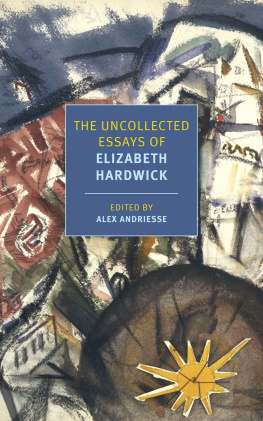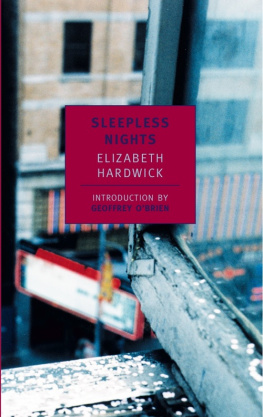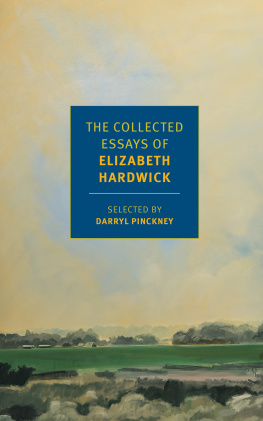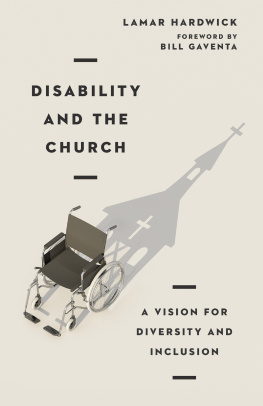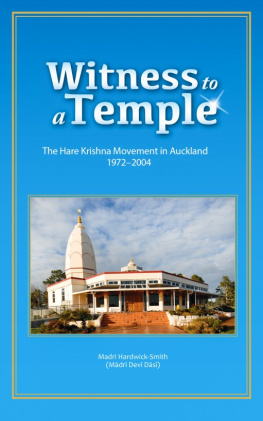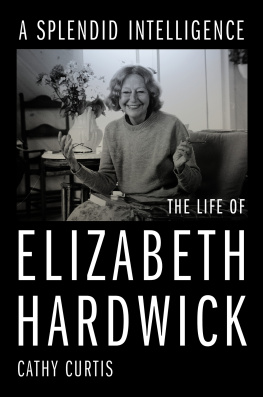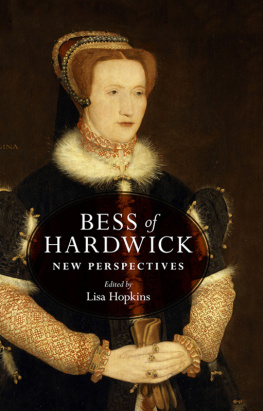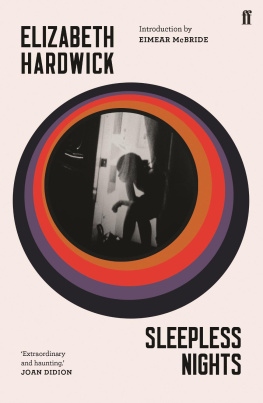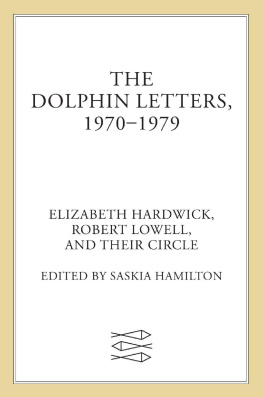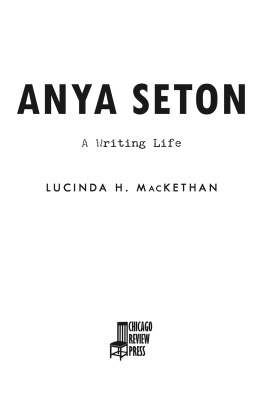Elizabeth Hardwick - The Uncollected Essays of Elizabeth Hardwick
Here you can read online Elizabeth Hardwick - The Uncollected Essays of Elizabeth Hardwick full text of the book (entire story) in english for free. Download pdf and epub, get meaning, cover and reviews about this ebook. year: 2022, publisher: New York Review Books, genre: Art. Description of the work, (preface) as well as reviews are available. Best literature library LitArk.com created for fans of good reading and offers a wide selection of genres:
Romance novel
Science fiction
Adventure
Detective
Science
History
Home and family
Prose
Art
Politics
Computer
Non-fiction
Religion
Business
Children
Humor
Choose a favorite category and find really read worthwhile books. Enjoy immersion in the world of imagination, feel the emotions of the characters or learn something new for yourself, make an fascinating discovery.
- Book:The Uncollected Essays of Elizabeth Hardwick
- Author:
- Publisher:New York Review Books
- Genre:
- Year:2022
- Rating:4 / 5
- Favourites:Add to favourites
- Your mark:
- 80
- 1
- 2
- 3
- 4
- 5
The Uncollected Essays of Elizabeth Hardwick: summary, description and annotation
We offer to read an annotation, description, summary or preface (depends on what the author of the book "The Uncollected Essays of Elizabeth Hardwick" wrote himself). If you haven't found the necessary information about the book — write in the comments, we will try to find it.
The Uncollected Essays of Elizabeth Hardwick — read online for free the complete book (whole text) full work
Below is the text of the book, divided by pages. System saving the place of the last page read, allows you to conveniently read the book "The Uncollected Essays of Elizabeth Hardwick" online for free, without having to search again every time where you left off. Put a bookmark, and you can go to the page where you finished reading at any time.
Font size:
Interval:
Bookmark:

ELIZABETH HARDWICK (19162007) was born in Lexington, Kentucky, and educated at the University of Kentucky and Columbia University. A recipient of a Gold Medal from the American Academy of Arts and Letters, she was the author of three novels, a biography of Herman Melville, and four collections of essays. A co-founder and advisory editor of The New York Review of Books, she contributed more than one hundred reviews, articles, reflections, and letters to the magazine. NYRB Classics publishes Sleepless Nights, a novel; Seduction and Betrayal, a study of women in literature; The New York Stories of Elizabeth Hardwick; and The Collected Essays of Elizabeth Hardwick.
ALEX ANDRIESSE was born in Cedar Rapids, Iowa, in 1985. His stories, essays, and poems have appeared in Granta, Prodigal, The Review of Contemporary Fiction, and Literary Imagination. He is the translator of Roberto Bazlens Notes Without a Text and Franois-Ren de Chateaubriands Memoirs from Beyond the Grave, 17681800 (an NYRB Classic). He lives in the Netherlands.
OTHER BOOKS BY ELIZABETH HARDWICK PUBLISHED BY NYRB CLASSICS
The Collected Essays of Elizabeth Hardwick
Selected and with an introduction by Darryl Pinckney
The New York Stories of Elizabeth Hardwick
Selected and with an introduction by Darryl Pinckney
Seduction and Betrayal
Introduction by Joan Didion
Sleepless Nights
Introduction by Geoffrey OBrien
THE UNCOLLECTED ESSAYS OF ELIZABETH HARDWICK
Edited by
ALEX ANDRIESSE
NEW YORK REVIEW BOOKS

New York
THIS IS A NEW YORK REVIEW BOOK
PUBLISHED BY THE NEW YORK REVIEW OF BOOKS
435 Hudson Street, New York, NY 10014
www.nyrb.com
Essays copyright 19511999 by Elizabeth Hardwick
Selection copyright 2022 by NYREV, Inc.
Introduction copyright 2022 by Alex Andriesse
All rights reserved.
First published as a New York Review Books Classic in 2022.
Cover image: John Marin, Lower Manhattan (Composing Derived from Top of Woolworth), 1922, Museum of Modern Art; Art Resource, NY
Cover design: Katy Homans
Library of Congress Cataloging-in-Publication Data
Names: Hardwick, Elizabeth, author. | Andriesse, Alex, editor.
Title: The uncollected essays of Elizabeth Hardwick / edited and introduced by Alex Andriesse.
Description: New York: New York Review Books, [2022] | Series: New York Review Books classics |
Identifiers: LCCN 2021027768 (print) | LCCN 2021027769 (ebook) | ISBN 9781681376233 (paperback) | ISBN 9781681376240 (ebook)
Subjects: LCGFT: Essays.
Classification: LCC PS3515.A5672 U53 2022 (print) | LCC PS3515.A5672 (ebook) | DDC 814/.52dc23
LC record available at https://lccn.loc.gov/2021027768
LC ebook record available at https://lccn.loc.gov/2021027769
ISBN 978-1-68137-624-0
v1.0
Cover
Biographical Notes
Other Books by Elizabeth Hardwick
Copyright and More Information
Y OU MIGHT think The Uncollected Essays of Elizabeth Hardwick would be a simple sequel to The Collected Essays edited by Darryl Pinckneya gleaning of what remained in the field after that rich harvest. Indeed, a selection more representative of Hardwick than Pinckneys is difficult to imagine. Merely assembling the essays, reviews, introductions, and eulogies he omitted would have been a worthwhile endeavor. It also would have made for a disjointed book, less a companion volume to The Collected than an appendage, incapable of standing on its own.
The thirty-five pieces I have gathered here are meant to make a case for Hardwick as an essayist in the words widest, wildest, oldest sense. I dont think this will provoke much controversy. Readers are aware of Hardwicks nonfictional forays beyond the bounds of criticismin Boston, In Maine, The Apotheosis of Martin Luther Kingalthough they may not be aware of how many of these forays she left out of the books published during her lifetime. Most of these Hardwick probably considered too topical or eccentric, or just too short. About one-third of the thirty-five collected here were written for glossy magazines (Vogue, Vanity Fair) where every word was counted, and it is easy to understand why she would not have wanted to juxtapose these pieces with longer essays composed for The New York Review of Books or Partisan Review. Besides, as Pinckney has said, Hardwick never liked publishing a book. Her ambition took the form of perfectionism rather than productivity; the quality of the writing she left to hibernate in back issues is proof, among other things, of a genuine, now nearly bygone, modesty.
Not to clutter this portrait of the artist as an essayist, I have excluded all of Hardwicks reviews of fiction, theater, and movies, and almost all of her prefaces and introductions. In doing so, my intention was to foreground the imaginative prose that perhaps best represents her own definition of the essay as nothing less than the reflection of all there is: art, personal experience, places, literature, portraiture, politics, science, music, educationand just thought itself in orbit. To impose some sense of order on all there is, I have imitated Hardwicks habit of grouping her essays into sectionsas in the Letters, Lives, and Locations of A View of My Ownthough I recognize these sections are relatively arbitrary. Hardwicks interests, like everyones, tend to blend together.
The one introduction I have included, written for Best American Essays, 1986, serves as a kind of keynote. Beginning with one of Hardwicks characteristic questions (The essay?), it proceeds to describe a few features of this most protean form. Essays, Hardwick finds, are addressed to a public in which some degree of equity exists between the writer and the reader; they are about something, something we may not have had reason to study and master, often matters about which we are quite ignorant; and they make a contribution to the cultural life. Formally speaking, they are exercises in style as a vehicle for ideas, with the result that a collection of essays becomes, in her words, a collection of variations very much in the musical sense.
The first of the themed sections in this book, Places, People, Things, is self-explanatory. New York City: Crash Course approaches Hardwicks adopted home from the air, zigzagging through the boroughs in time and space, from the first Dutch settlers to the Dead Rabbits and Plug Uglies, from Melville at his desk to Captain Kidd on the stand. Lexington, Kentucky returns us to the city that was truly home (not just a birthplace) to Hardwick, before Puritanical Pleasures takes us up north to the small town of Castine, Maine, where she spent some forty or so summers. As for peopleHardwicks preferred subject whatever she happened to be writingthere are migrs (Einstein, Balanchine, Nabokov), friends (Sontag and Porter), and at least one movie star (Faye Dunaway). The inclusion of Things, with its canny assessment of possessions (a threat to the soul and a solace to the senses), was irresistible.
Piety and Politics, the second section, is more the sort of grouping Hardwick herself might have made. A short meditation on election years sets the tone for these essays on the Unions abiding love of spectacle and change. The landscape of America seems often like one of those endangered kingdoms in old sagas, she writes, in a lucid, visionary prose one can scarcely believe was once printed in
Font size:
Interval:
Bookmark:
Similar books «The Uncollected Essays of Elizabeth Hardwick»
Look at similar books to The Uncollected Essays of Elizabeth Hardwick. We have selected literature similar in name and meaning in the hope of providing readers with more options to find new, interesting, not yet read works.
Discussion, reviews of the book The Uncollected Essays of Elizabeth Hardwick and just readers' own opinions. Leave your comments, write what you think about the work, its meaning or the main characters. Specify what exactly you liked and what you didn't like, and why you think so.

